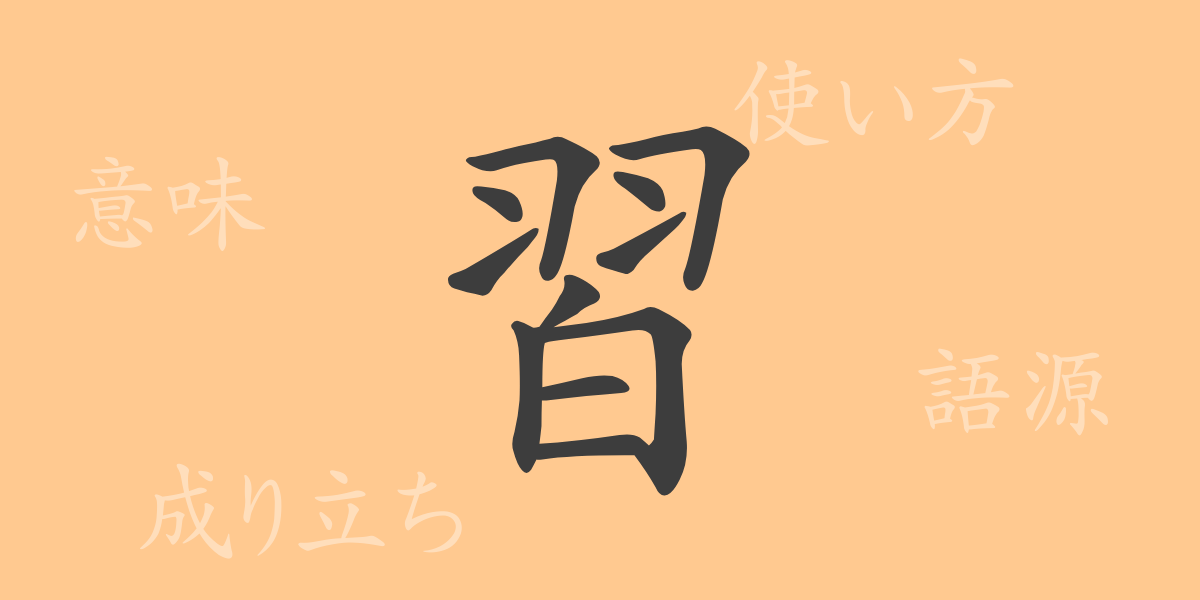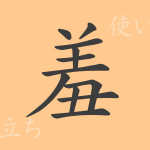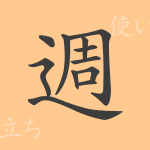The richness of the Japanese language is deeply embedded in the meanings carried by individual kanji characters. This time, we focus on the commonly used kanji “習(ならう, narau)”, exploring its origins, modern usage, and the profound significance it holds in our daily lives. This character symbolizes the importance of habits and learning. Let’s delve into the world of the kanji “習(ならう, narau)”.
Origin of 習(ならう, narau) (Etymology)
The kanji “習(ならう, narau)” originated from an ancient Chinese pictograph representing a bird spreading its wings to fly. This imagery of a bird taking flight and repeatedly flapping its wings evolved into the meaning of “to learn” or “to practice”. Over time, “習(ならう, narau)” came to symbolize the concepts of acquiring skills and habits through repetition and practice.
Meaning and Usage of 習(ならう, narau)
The kanji “習(ならう, narau)” primarily means “to learn” and “to become accustomed to”. It refers to the process of acquiring knowledge or skills and becoming familiar with something through repeated practice. In Japan, the importance of “習う(ならう, narau)” is emphasized in the education system, highlighting the significance of diligent learning. Additionally, the word “習慣(しゅうかん, shuukan)” refers to habits or patterns of behavior that naturally develop in daily life, deeply influencing our actions and culture.
Readings, Stroke Count, and Radical of 習(ならう, narau)
Understanding the readings and structure of the kanji “習(ならう, narau)” is valuable.
- Readings: The on’yomi (音読み) reading is “シュウ(しゅう, shuu)”, and the kun’yomi (訓読み) reading is “ならう(ならう, narau)”.
- Stroke count: The kanji “習(ならう, narau)” has 11 strokes.
- Radical: The radical is 羽(はね, hane), indicating its relation to feathers or wings.
Idioms, Phrases, and Proverbs Using 習(ならう, narau)
There are numerous idioms, phrases, and proverbs in Japanese that incorporate the kanji “習(ならう, narau)”. For instance, “習慣(しゅうかん, shuukan)” refers to daily habits, “習作(しゅうさく, shuusaku)” means a work created for practice, and “修習(しゅうしゅう, shuushuu)” indicates the learning and mastering of specific skills or knowledge. The proverb “習うより慣れろ(ならうよりなれろ, narau yori narero)” emphasizes the importance of learning through experience rather than theory alone.
Conclusion on 習(ならう, narau)
The kanji “習(ならう, narau)” symbolizes the process of learning and growth. From its origins to its modern applications, this character has an immeasurable impact on Japanese life and culture. Beyond school studies, “習(ならう, narau)” manifests in everyday habits and practices, reminding us of the enduring importance of continual learning. Through this exploration, we hope to reaffirm the value of lifelong learning embodied in the kanji “習(ならう, narau)”.

























